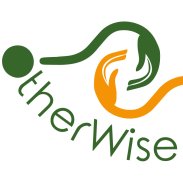News
Reflections on Moral Compass Conference
(Photo credits: Rindert W. Keestra)
Two international development students, who participated in the Capita Selecta trilogy "A Moral Compass", reflect on their visit to the Bridge to the Future Conference one month ago. It was an inspirational afternoon with touching and awakening speeches and discussions in the beautiful Eusebius Church, leaving the audience of +600 people with a lot of food for thought. A day during which a common conscienceness on our moral compasses was actively triggered.
~~~~~~~~~~
By Eline van Dis:
The 12th annual Bridge to the Future conference featured the theme "Moral Compass". A moral compass is an internalized set of values that guides an individual with regards to ethical decisions, i.e. what is good and what perhaps is not. During the conference several speakers portrayed how they interpret or impersonate their moral compasses. Jan Terlouw spoke of trust specifically, and the lack thereof in society. Herman van Rompuys spoke about reconciliation and cooperation of society as a whole to commit to humanity. In my reality, and perhaps in my pessimism, I must side with Jan Terlouw. I cannot help but to be critical of Rompuys words; just open a newspaper and watch the news. Perhaps we must value deeds and action, more than optimistic hopeful words. For it is General Major Kees Mattijssen and Brigadier Coin Weir, who spoke of moral courage, which refers to the courage to practice moral compass. However, as Sheila Sitalsing points out, morality, norms and values are hidden in the details of our language. Words can give access and legitimacy, but it can also lead to exclusion. In short, morality is complex. A moral compass is trust; it is practice what you preach; it is in the details of our language; it is something to pursue as the society as a whole; it is a girl that lost her teddy bear whilst fleeing her hometown; and it is a fabric bag with an apple and underwear given to a husband before being taken away by Nazi soldiers.
This conference has made me think about my moral compass. I urge you to think about your moral compass, whilst looking at our past, present and future. Dare to be critical, open-minded, and mind the details. What is your moral compass?
~~~~~~~~~~
By Inez Dekker:
During the conference I was part of the youth panel. We were asked to write something about our moral compass. Because the moral compass seems to be a very abstract and debatable notion, I can only describe my compass from a meta perspective. A moral compass for me is based on an artwork and carpet designed by Diana Scherer made of earth and plant roots called "interwoven". This artwork shows the relational aspect of morality by the intertwining of one to another. The carpet has different structures that shows one structure cannot be seen and exist seperate from the larger whole. This means that I see my moral compass as not only determined by myself, but that this is highly intertwined with the environment I live in as a relational subject. This does not mean that the personal moral compass is completely surrendered and determined by and through others. Each root has a different origin, communicating with other roots, and thus making it possible to change structures. However, in order to maintain the structure (and survive), the roots are dependent on each other. Morality for me means having the knowledge of the other and reacting ethically to our relational existence to create a multitude of possibilities.
